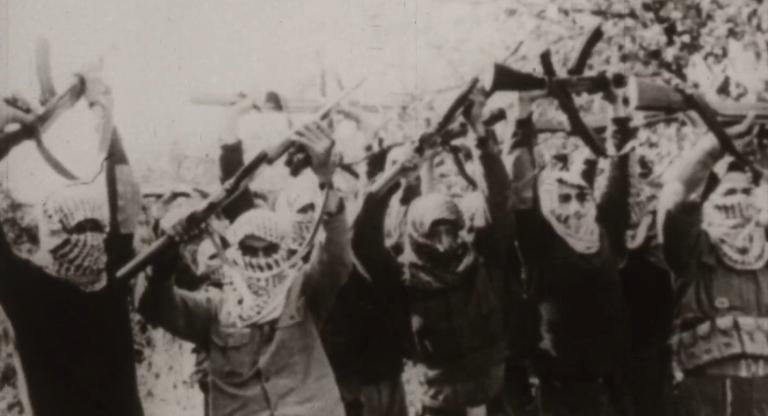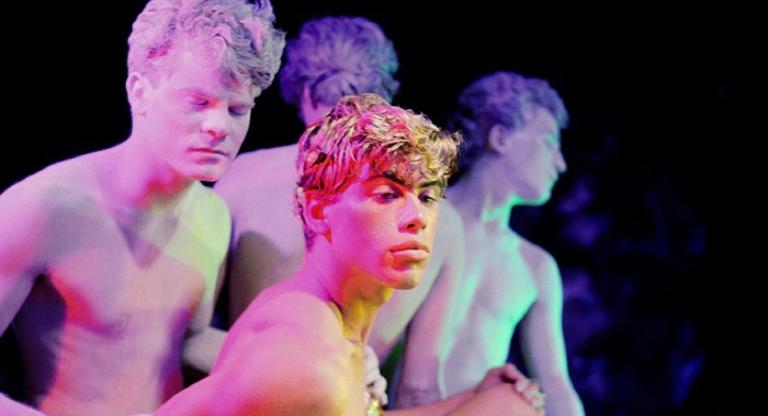This evening Light Industry presents a rare 16mm screening of Pressure, the outstanding narrative debut of Trinidad-born British filmmaker Horace Ové, which also has the distinction of being the first British narrative feature directed by Black man.
The film offers a panorama of British social, economic, and political life filtered through its teenage protagonist Tony’s experiences as a native British son of immigrant parents. It begins, pithily enough, with a scene of Tony and his Trinidad-born older brother Colin arguing over the proper name of zaboca/avocado and the virtues of Trinidadian food versus fish and chips; “Your taste in food is like your taste in music,” Colin says, gesturing toward a Gary Glitter poster (oof). Although it’s Tony’s show, the dynamic between the brothers provides the narrative drive as Tony’s experiences nudge him from meek assimilation toward his sibling's political activism. This encompasses Tony’s failure to find simple accounting work despite his clean record and academic accomplishments; his thwarted romantic ambitions with an admiring redhead whose landlord forbids Tony from visiting the premises; and his budding friendship with a group of petty thieves whose struggles with broken homes and racist police raise Tony’s awareness of systemic oppression.
Ové’s background as a documentary filmmaker for the BBC and his non-fiction features on James Baldwin and reggae shine through in Pressure’s naturalistic performances and rich portraits of state, religious, and social institutions -- this includes the church, which one character memorably describes as “where all them Black people dress up and go kneel and ask the white man for forgiveness.” Much of the later part of the film takes place in halls, apartments, and other sites of activism, where impassioned speeches on trans-Atlantic racial and class solidarity are shot through with an electric veracity.
In his notes, programmer Ashley Clark, also responsible for BAM’s Afrofuturism and Bamboozled series, identifies a personal connection to the protagonist as a fellow child of first-born British Caribbean emigres. “Wouldn’t it have been nice to have seen Tony -- or at least a version of Tony -- grow up onscreen, reflecting a particular element of British society in the same way that the famously freeze-framed Antoine Doinel in The 400 Blows did for the French?” Clark writes. “Sadly, the Black British experience is one that’s been badly underserved by its national cinema.” So it is with programming, and all the reason to consider tonight’s show a can’t-miss.

